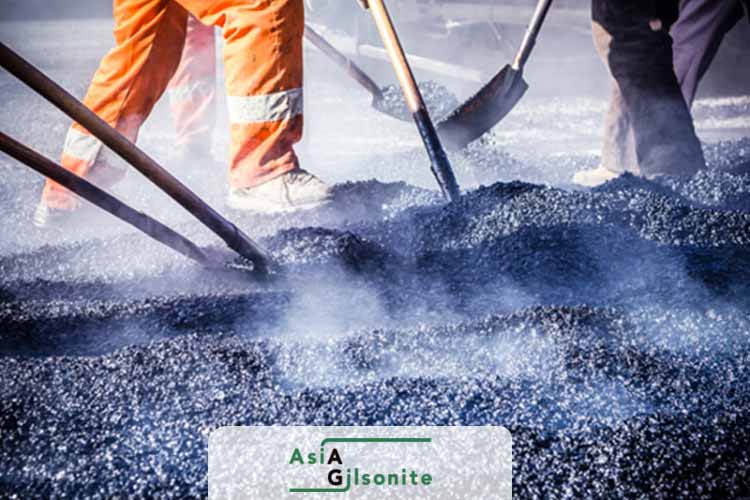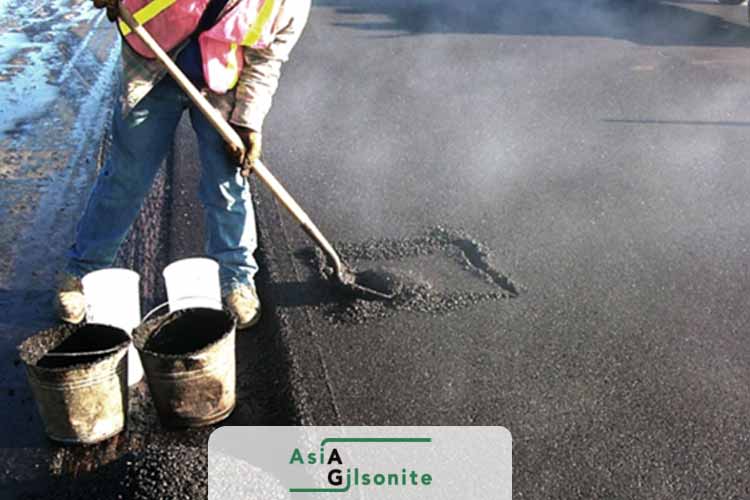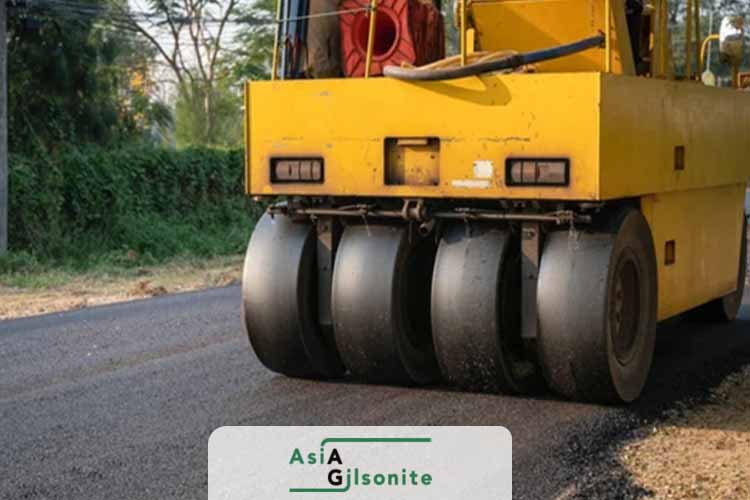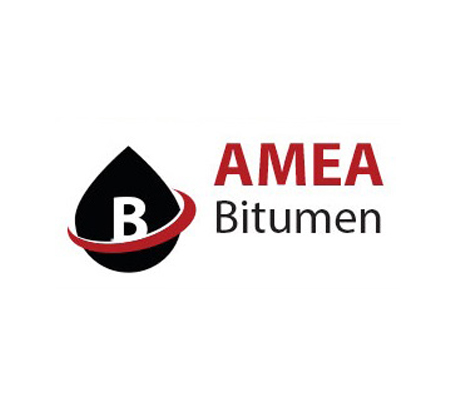Gilsonite is a powerful natural hydrocarbon resin with remarkable properties. What is Gilsonite in asphalt mixtures? It is a black, shimmering, and brittle substance mined from the earth’s surface in various places worldwide. When incorporated into asphalt, it can strengthen the asphalt mixtures, making them more robust, enduring, and less likely to become distorted or split. Furthermore, Gilsonite augments asphalt’s viscosity and diminishes its vulnerability to temperature fluctuations.
To explore how high-grade Gilsonite can transform your asphalt formulations and learn more about optimal implementation techniques, visit Asiagilsonite, your comprehensive resource for natural resin solutions.
How Is Gilsonite Added to Asphalt Mixtures
Here are the steps to add Gilsonite to an asphalt mixture:
- Determine the ideal amount of Gilsonite to add to asphalt paving. The desired properties and performance of the final product greatly depend on the Gilsonite that is used, careful consideration needs to be taken into account when selecting and calculating the correct amount.
- heat the asphalt to the appropriate temperature for the type of asphalt and the amount of Gilsonite you’re using.
- Begin by slowly and cautiously stirring the hot asphalt blends. As the mixture is being continuously stirred, cautiously and gradually add the Gilsonite powder in order to ensure that it is evenly distributed throughout the blend. Once the powder is added, stir the mixture vigorously to ultimately achieve a uniform blend.
- Test the Gilsonite-modified asphalt mixture to guarantee the viscosity, density, and other performance characteristics fulfill the specified criteria. This asphalt composite is suitable for paving roads and airstrips, in addition to other applications.
Note: The addition of Gilsonite to asphalt requires special care and attention to detail. To ensure that the mixture is of the highest quality, it is strongly recommended to work with an experienced engineer or supplier to develop a plan tailored specifically to the project at hand.
What Type of Gilsonite Is Used in Asphalt Mixtures
Gilsonite, a highly distinctive mineral, is used in asphalt mixtures in a variety of grades and forms.
- Refined Gilsonite has undergone extensive purification processes to remove impurities and excess hydrocarbons, leaving a material composed of consistent components and offering ideal properties for asphalt blends.
- Micronized Gilsonite has been ground to an ultrafine powder, which can be effortlessly blended into the asphalt blend to create a homogeneous consistency and improved performance.
- Pelletized Gilsonite is another form that offers additional properties such as greater durability and particle uniformity. Each type of Gilsonite has its own advantages and can be useful in specific scenarios.
Choosing a quality Gilsonite to include in asphalt is paramount, as its presence can significantly affect the overall performance of the mixture. Depending on the desired properties of the resultant asphalt, varying grades and types of Gilsonite can be chosen to produce the desired effect.
When Is Gilsonite Added to Asphalt Mixtures?
Gilsonite is a common additive in asphalt mixtures, often added during the production process at an asphalt mixing plant. Incorporating Gilsonite requires careful consideration, with the developer specifying the precise timing and execution for its addition. Sometimes, the Gilsonite is directly added to the asphalt tank before the aggregate is added, whereas in other cases it might be blended into the asphalt binder.
Whatever the approach, this additive is an essential component of any asphalt blend, providing vital benefits when correctly or evenly dispersed, which is why manufacturer guidelines are necessary for ensuring it is added in the right manner.
The Benefits of Using Gilsonite in Asphalt Mixtures
Gilsonite has various advantages when used in asphalt blends, including:
Increased Tensile Strength and Durability
Gilsonite can increase the strength and tensile durability of asphalt paving, increasing its resistance to deformation and cracking under strong traffic loads.
Greater Flexibility
Gilsonite can make asphalt mixtures more adaptable, making them more resistant to weathering and temperature variations.
Greater Adhesion
Gilsonite can increase the bond between the aggregate and asphalt binder, making the pavement more durable and solid.
Lessened Rutting
The permanent deformation of the pavement brought on by high traffic can be lessened by the use of Gilsonite in asphalt blends.
Increased Resistance to Moisture Damage
Gilsonite can make asphalt blends more resistant to ravaging and stripping caused by moisture.
Improved Workability
The addition of Gilsonite to asphalt blends can make them easier to work with during construct ion, making the paving process more effective and efficient.
Conclusion
Gilsonite, a naturally occurring hydrocarbon resin, can significantly improve the qualities of asphalt mixtures. It can boost the asphalt’s strength, durability, flexibility, adhesion, and resistance to moisture damage when added correctly. Different types and grades of gilsonite can be added to asphalt paving, but the timing and method of doing so need to be well thought out. Overall, Gilsonite’s advantages over other materials in asphalt blends make it a crucial element in the creation of strong, long-lasting roads and pavements.






